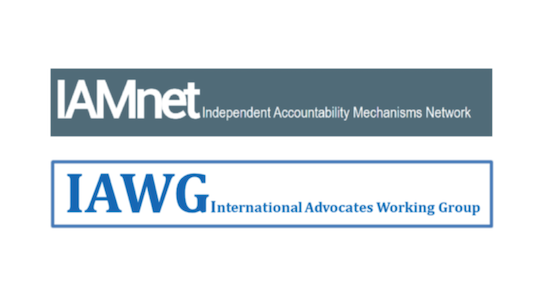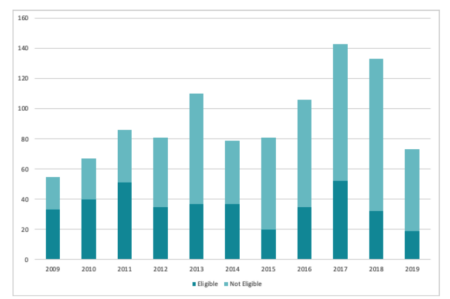Access and Eligibility Issues the Focus of IAM-CSO Accountability Roundtable

Last week, Accountability Counsel and 22 civil society organizations joined independent accountability mechanism (IAM) representatives from 17 development finance institutions for a multifaceted and deep discussion of complaint eligibility issues that can hinder community access to justice. The International Advocates Working Group (IAWG) and the Independent Accountability Mechanisms Network (IAMnet) coordinated the virtual roundtable event.
The reasons behind eligibility decisions are important to understand considering that IAMs are one of few avenues available for project-affected communities to seek redress for adverse environmental and social impacts of internationally financed projects. To set the stage for the roundtable’s discussions, Accountability Counsel’s Policy Director, Margaux Day, shared key data pulled from the Accountability Console, a tool we developed that includes a searchable database of human rights and environmental grievances, to highlight policies and practices that have led to the situation of less than half of all complaints submitted to IAMs being deemed eligible.
There are multiple reasons why an IAM might find a complaint to be ineligible; over the past 10 years, a frequent reason was that the underlying allegations fell outside of their respective mandates. Other reasons include: the issue was addressed outside of the IAM process; the complaint was withdrawn; project funding had ended; the issue had already been raised; and the complainant was deemed not to be affected by the project. The reasons for some ineligibility decisions are not publicly known.
Putting Eligibility on the Table at the Roundtable

Source: Accountability Console
So, with the data driving the discussion, IAWG and IAMnet members discussed technical barriers and access to information issues that lead to the dismissal of complaints. In addition, many IAMs presently lack the authority to consider complaints concerning global issues like climate change or protecting biodiversity (sometimes referred to as “global public goods”). This creates an accountability gap that can leave people and the environment vulnerable to unaddressed negative project impacts. Another barrier to eligibility discussed was the involvement of third parties. Development banks have increasingly provided financing to financial intermediary clients, which can obscure financial linkages and ultimate responsibility for harm. As a result, many IAMs are beginning to formulate methodologies to handle complaints concerning financial intermediary lending and supply chain issues.
Roundtable and breakout discussions were rich and provided a constructive forum for recognizing barriers for complaint eligibility and proffering solutions that can be taken by IAMs, institutions, and CSOs to ensure that communities can have their grievances heard. As several institutions are currently evaluating their accountability frameworks, including the International Finance Corporation and the African Development Bank, this discussion on barriers to justice is as important as ever. Accountability Counsel will build off of the dialogue to continue our mission of ensuring that IAMs are effective avenues for communities to seek accountability.
Related Posts
- 23 September 2020 African Development Bank Launches Public Consultation on its Independent Review Mechanism
- 17 September 2020 Accountability Counsel and Partners Submit Comments on Key Report Consequential to Accountability Policies, Practices, and Culture at the IFC and MIGA
- 18 November 2019 New complaints database aims to strengthen accountability in development

